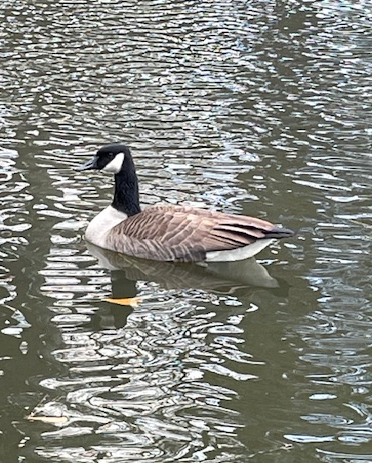Believe it or not, the Canada goose almost became extinct in the early 20th century. There were so few mating pairs left that a concerted effort was launched to save this majestic bird. Needless to say, the efforts were hugely successful.

Today, Canada geese have proliferated to such an extent that they are considered pests in many areas – including my neighborhood. We are fortunate to live near a small pond and a series of parks – a neighborhood enticing to both people and the Canada goose.
There are several problems with the geese; they leave droppings everywhere and the droppings often contain harmful bacteria, they crowd out other more desirable water birds, and they can be very aggressive, especially during mating season. And there are just too many of them.

Even so, the Canada goose, which is native to North America, is protected by our migratory bird act. Someone just forgot to tell the geese that they need to migrate. The Georgia Department of Natural Resources says that complaints about geese top the list of calls they receive. Even though you cannot harm, kill or move the geese, DNR encourages you to hassle and haze. But really, who wants to put up strips of shiny molar or balloons or barking dogs or sound making machines or shiny fences in an area that is supposed to be natural, serene and beautiful. It’s a quandary.

It’s also a really good example of best intentions going haywire. With the increase of man-made ponds and lakes in urban areas, the highly adaptable Canada goose population has exploded and in many areas, is permanent. In our neighborhood, as in others, the problem is exacerbated by people who want to feed the geese, which not only encourages them to stay and makes them poop more, but geese that eat processed food such as bread, also contributes to potentially lethal water fowl diseases.
I am a true believer in the critical need for biodiversity and in protecting every native species. But our continued interference with nature has proven time and again to have unforeseen consequences. But, since both coyotes and geese have adapted so well to our urban neighborhood, I’m hoping that nature will take take care of the goose problem!
